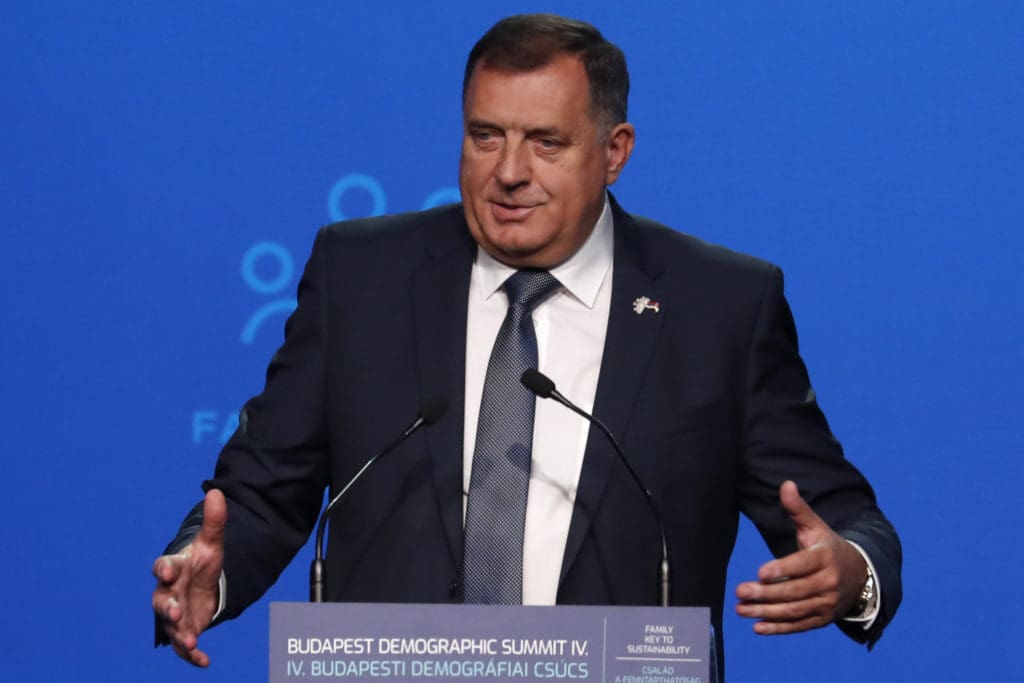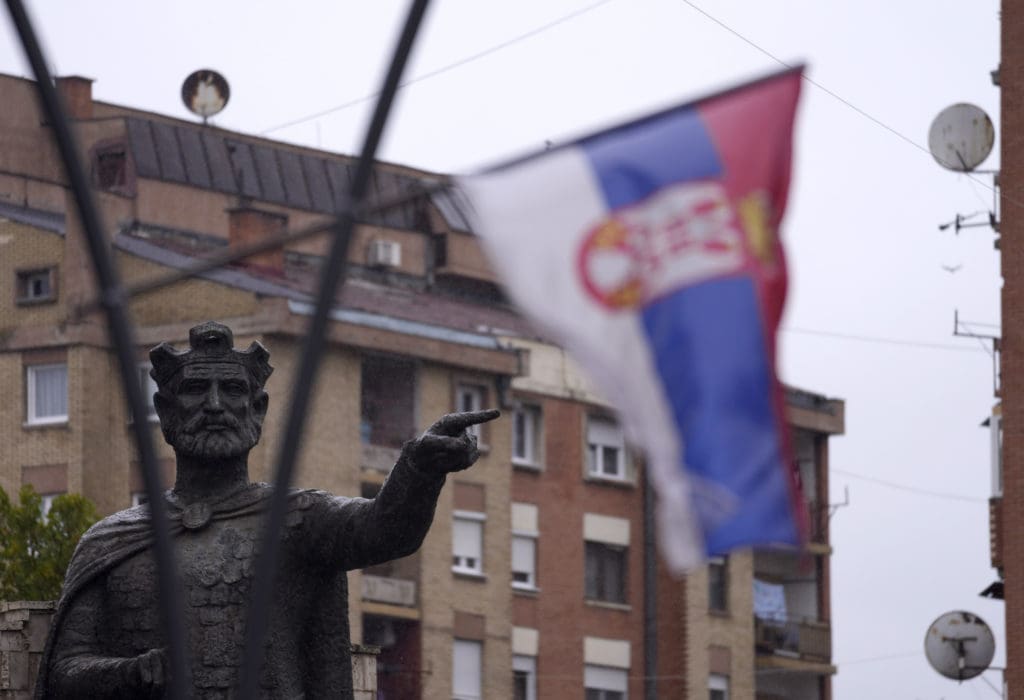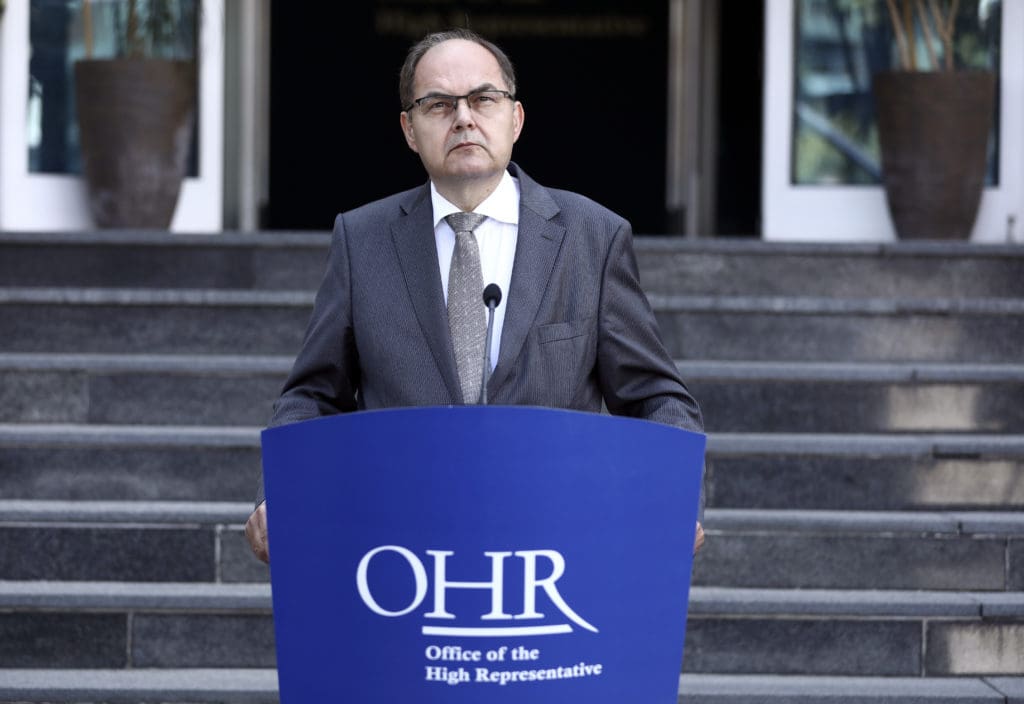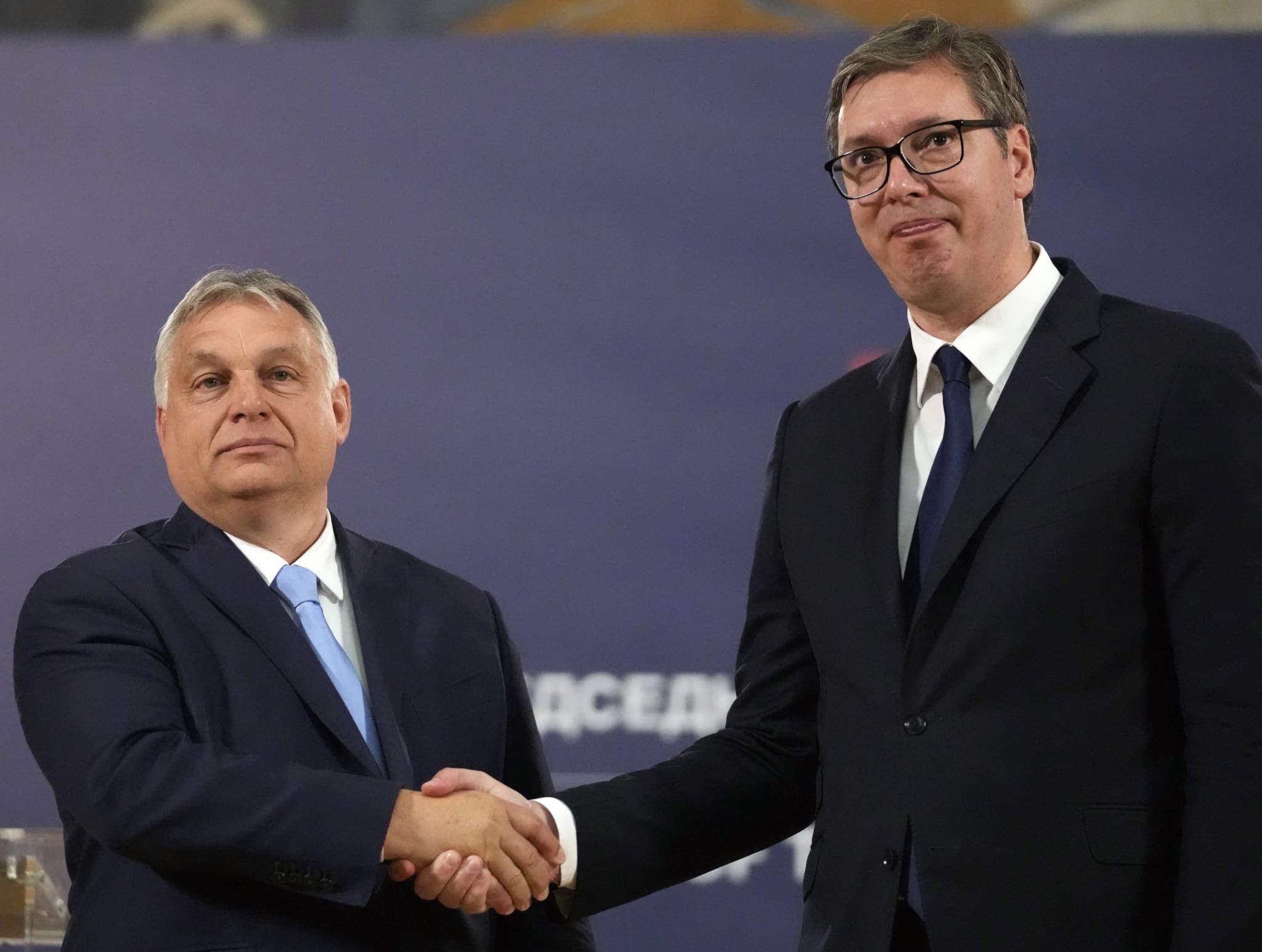As clouds gather over the small Balkan country of Bosnia and Herzegovina due to signs of strengthening separatist moods among its Serbian population, one regional politician seems to be undeterred in his effort to enter the powder keg and speak to all sides involved. Hungarian Prime Minister Viktor Orbán visited Banja Luka last week, which is the capital of the autonomous Serb enclave within the country, and met with Milorad Dodik, the Serbian member of Bosnia-Herzegovina’s presidential troika.
The official visit to Banja Luka was met with predictable attacks from the international press and left-wing opposition figures in Hungary, accusing Orbán of maintaining relationships with a politician, “whose war criminal predecessors have committed genocide and caused a migrant crisis in Europe.”

As to the charge of causing a migration crisis in Europe, the Western media seems to be exceptionally selective to the point of being cynical, when in the past few years millions of Asian and African migrants have entered the continent illegally, and are still doing so in their thousands due to the European Union’s open-door policy and unwillingness to confront the issue.
As to the charge of talking to a successor of war criminals, Milorad Dodik has not been accused of any involvement in past or present war crimes, and is an elected official of the Serbian community in Bosnia. As such, he is acting on the wishes of the community that put him in power, making no secret of the fact that he would wish to gain independence from the rest of Bosnia.

Others accuse Orbán of playing into the hands of the Russians. Its no secret that in recent years Moscow has gained a political, and even military foothold in Serbia, and other Serb-inhabited enclaves in the Balkans. This fact though has way more to do with the EU’s failure to engage in the region effectively than with a Hungarian political presence. The EU has been promising to open talks with Serbia about the Balkan country’s membership in the bloc for years with no, or very little progress.
In contrast, the Hungarian government has been without a doubt the most vocal international supporter of Serbia’s EU membership. Yet, it is no secret that due to some EU member states’ opposition to further enlargement, Serbia is gradually turning eastward where it can find more understanding for its historic grievances and future strategic goals. The EU is employing its well-rehearsed Hungarian boogeyman tactic when it comes to rising tensions in the Balkans, yet this is hard to see as anything else than an attempt to divert attention from its own lack of vision and political impotence.

In fact, the Hungarian government had engaged with all sides in Bosnia, with Hungarian Foreign Minister Peter Szijjártó meeting Zoran Tegeltija, prime minister of Bosnia in July, and donating 200,000 Covid vaccines to the country. While UN-appointed peace envoy, German politician Christian Schmidt, warned last week that the Dayton peace agreement was in danger of crumbling and the Serb enclave could seek independence from the rest of Bosnia even with the use of force, Orbán had decided to employ the best and most tested method of deflating political tensions: commerce.
On his visit, the Hungarian prime minister declared his intentions to “expand neighborhood and economic programs to the Republika Sprska, and to support small- and medium-sized enterprises in order to open new opportunities for Hungarian entrepreneurs.”

Orbán is very aware of the fact that engaging in the region’s contentious political issues carries its own very real risks.
“Hungarian history shows clearly the effect of the [Balkan] region’s events on our country,” said Orbán during a press meeting. Yet, the Hungarians have multiple reasons for keeping their Serbian neighbors on their side:
- First and foremost, the sizable Hungarian minority living in Serbia has been subjected to numerous political attacks since the fall of the Communist bloc in 1989, and Orbán aims to prevent this by maintaining cordial ties with current Serb President Aleksandar Vučić.
- Most illegal migrants enter Hungary via its southern borders from Serbia. The two countries have an agreement, according to which Hungarian authorities can return all illegals apprehended at the border to Serbia. The agreement seems to be holding up well, despite the fact that there are as many as 500 illegal crossings on a daily basis.
- Since ties with the EU bureaucracy have been strained ever since Hungary had closed its borders during the 2015 migrant invasion, the Orbán government has sought to diversify its economic and political alliances outside the EU with notable success. European officials might not like the fact that Hungarian and Russian interests seem to be joined in Serbian prosperity, but Brussels’ inaction and political shambles leaves no viable options for the Serbian leadership than to take what is on offer.
Orbán will no doubt seize the opportunity to make the contrast between his active engagement and the EU’s passivity in the region politically visible. However, it remains a fact that the EU has little to no authority in its backyard (Dodik, just as the Russians, is refusing to accept the mandate of Christian Schmidt).
Political actors in the region believe the EU has no vision and is distracted by its own petty ideological crusades while others gain influence in its traditional sphere of influence. According to observers, the independence of Republika Srpska from the rest of Bosnia is only a matter of time, and the real question is whether the process can be done peacefully, or armed conflict is inevitable. Brussels is recognized by all parties in the region only as a bearer of broken or unfulfilled promises. Russia, Hungary and to some extent the United States will have to take up the role of mediators between the warring parties in order to prevent a repeat of the tragic Balkans wars of the 1990s.






